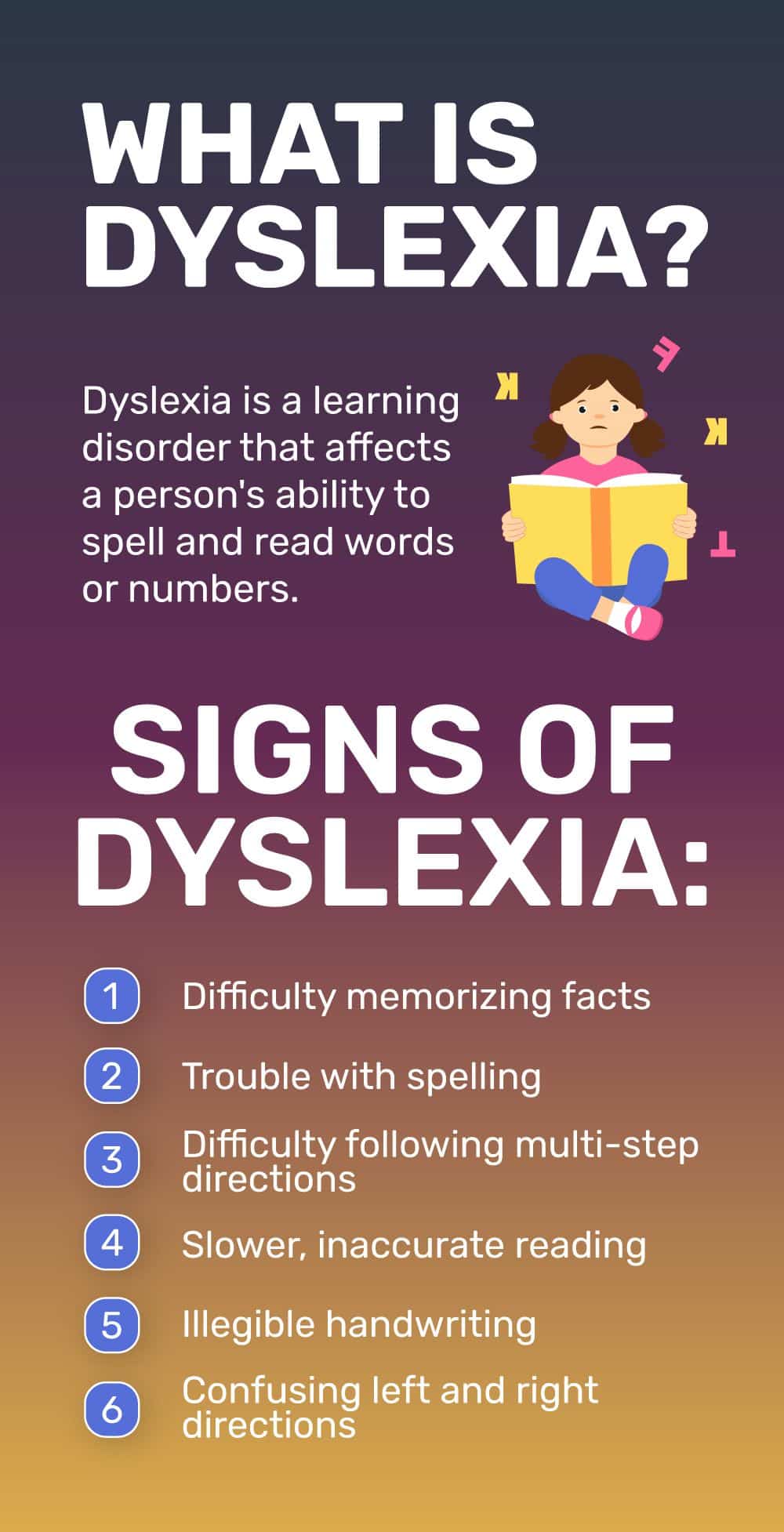What Is Dyslexia? A Parent’s Guide to Understanding and Supporting Your Child
Welcome, wonderful parents! Are you concerned about your child’s reading ability or wondering what dyslexia is all about? You’re at the right place! In this heartwarming guide, we’re going to dive into the world of dyslexia to help you better understand what your child may be experiencing. We’ll walk together on this journey, shedding light on the challenges and uncovering the joys of supporting a child with dyslexia. So, grab a cup of your favorite beverage, and let’s get started!
Defining Dyslexia
First thing’s first—what exactly is dyslexia? Dyslexia is a common learning difficulty that primarily affects the skills involved in accurate and fluent word reading and spelling. Despite what some might think, it has nothing to do with a lack of intelligence or desire to learn. In fact, dyslexic individuals often have unique strengths and are just as capable as anyone else!
The term ‘dyslexia’ comes from the Greek words ‘dys’ meaning ‘difficult’ and ‘lexis’ meaning ‘language’ or ‘words’. It is a neurological condition, meaning it stems from differences in the way the brain is wired. These differences can lead to challenges in phonological awareness, verbal memory, and verbal processing speed.
Identifying Dyslexia in Children
Identifying dyslexia early can make a significant difference in a child’s life. But remember, each child is a unique star in the vast sky of learning! Some common signs of dyslexia include:
- Difficulty learning to read or spell, despite regular teaching and parental support
- Challenges in recognizing and manipulating the sounds in words (phonemic awareness)
- Trouble in word retrieval or naming things quickly
- Mixing up the order of letters in words while reading or spelling
- Aversion to reading aloud or avoiding reading activities
But don’t worry! With your loving support, patience, and the right strategies, your child can overcome these hurdles. They’ll become a confident reader, in their own time and way, flourishing in a garden that celebrates their individual strengths and talents.
The Emotional Aspects of Dyslexia
Beyond the academic challenges, dyslexia can also touch the emotional realm of a child’s world. Imagine trying to decipher a secret code when everyone else seems to have the key. It can be frustrating, right? That’s why we’re here—to ensure that your child feels supported, understood, and never alone on this adventure.
Emotional support is equally crucial to academic support. Understanding, compassion, and acknowledgment of their efforts can go a long way in building their self-esteem and resilience. Celebrate the small victories, revel in their progress, and always, always let them know how astoundingly incredible they are. After all, dyslexia is just a part of their star-studded journey!
Knowledge is power, and the more we understand about dyslexia, the more we can help our children navigate through this challenge with grace and confidence. In the next sections, we’ll explore how dyslexia is diagnosed, evidence-based interventions, and practical tips for making reading and learning a more enjoyable experience.
Stay tuned, as we’ll dive into these topics, ensuring you are armed with the insights and tools to support your little one’s unique learning style. Together, we’ll turn what might seem like a wall of challenges into a ladder of opportunities, fostering resilience, and a lifelong love of learning in your child. So, keep that enthusiasm sparkling, because every page of this guide is filled with love, support, and endless possibilities for your child!

5 Things Parents Should Know in Preparing for What Is Dyslexia
Before you embark on this journey, here are five essential nuggets of wisdom to keep in your pocket:
1. Early Intervention is Key
Recognizing the signs of dyslexia early on can help your child get the support they need. Early intervention can lead to more effective outcomes and help prevent a cascade of challenges down the road. If you notice any of the signs mentioned above, consider a professional evaluation.
2. Dyslexia Varies from Child to Child
Just like snowflakes, no two children with dyslexia are alike. The severity and range of challenges can vary widely. So, it’s vital to understand and appreciate your child’s unique profile of strengths and weaknesses. This understanding will guide you in seeking out the most appropriate support and interventions.
3. Structured Literacy Programs Can Be Game-Changers
Research has shown that explicit, systematic, and multisensory reading instruction is beneficial for children with dyslexia. These programs, often referred to as structured literacy, break down reading into smaller, manageable components and use multiple senses to reinforce learning.
4. Accommodations Aren’t Cheats; They’re Equalizers
Parents should familiarize themselves with the accommodations that can help level the playing field for their dyslexic child. These might include extra time on tests, the use of text-to-speech software, or the option to give verbal rather than written responses. Remember, these accommodations allow children with dyslexia to showcase their knowledge without being hindered by their reading difficulties.
5. Your Attitude Makes a Difference
Lastly, your perception and attitude towards dyslexia can significantly impact your child. Model resilience, positivity, and a problem-solving mindset. Embrace dyslexia not as a deficit but as a different way of thinking that can come with its own set of advantages. Celebrate the diversity of thought and the alternative skills your child brings to the table.
Arming yourself with these insights will ensure you’re taking steps in the right direction. Keep learning, keep supporting, and remember that success is not just about reading but about nurturing a confident, happy, and well-rounded individual. Your child has a world of potential—let’s help them shine!
Diagnosing Dyslexia
To officially identify dyslexia, a comprehensive evaluation by a qualified professional is recommended. This evaluation will typically involve a series of tests to assess reading, language, and spelling abilities, as well as cognitive processes such as memory, phonological skills, and processing speed.
Getting a diagnosis can be a relief as it provides a clear explanation for your child’s struggles, allows for the development of a targeted intervention plan and can help access accommodations in educational settings.
Evidence-Based Interventions for Dyslexia
Once a dyslexia diagnosis is established, it’s crucial to explore evidence-based interventions. Structured literacy programs, as mentioned earlier, are highly effective. Additionally, there are several approaches such as Orton-Gillingham, Wilson Reading System, and the Lindamood Phoneme Sequencing Program, which have been designed specifically to help children with dyslexia.
Working with a dyslexia specialist or a reading tutor experienced in these interventions can significantly benefit your child. Remember, you’ll also want to build a supportive team for your child, which could include teachers, school psychologists, and other educators aware of your child’s learning profile.
Making Reading Enjoyable for Dyslexic Children
Create a joyful reading environment by incorporating interests and choices. Use books with engaging visuals, explore audiobooks, and provide technology that can make reading more accessible, such as apps that highlight text as they read aloud. The aim is to foster a love of stories and information without the stress that reading can sometimes bring.
As we continue, there are more insightful tips awaiting to empower you in your role as your child’s most vital supporter. Let’s navigate this path with courage and cheer, discovering the extraordinary in every learning opportunity!
See more great Things to Do with Kids in New Zealand here. For more information see here
Disclaimer
The articles available via our website provide general information only and we strongly urge readers to exercise caution and conduct their own thorough research and fact-checking. The information presented should not be taken as absolute truth, and, to the maximum extent permitted by law, we will not be held liable for any inaccuracies or errors in the content. It is essential for individuals to independently verify and validate the information before making any decisions or taking any actions based on the articles.




